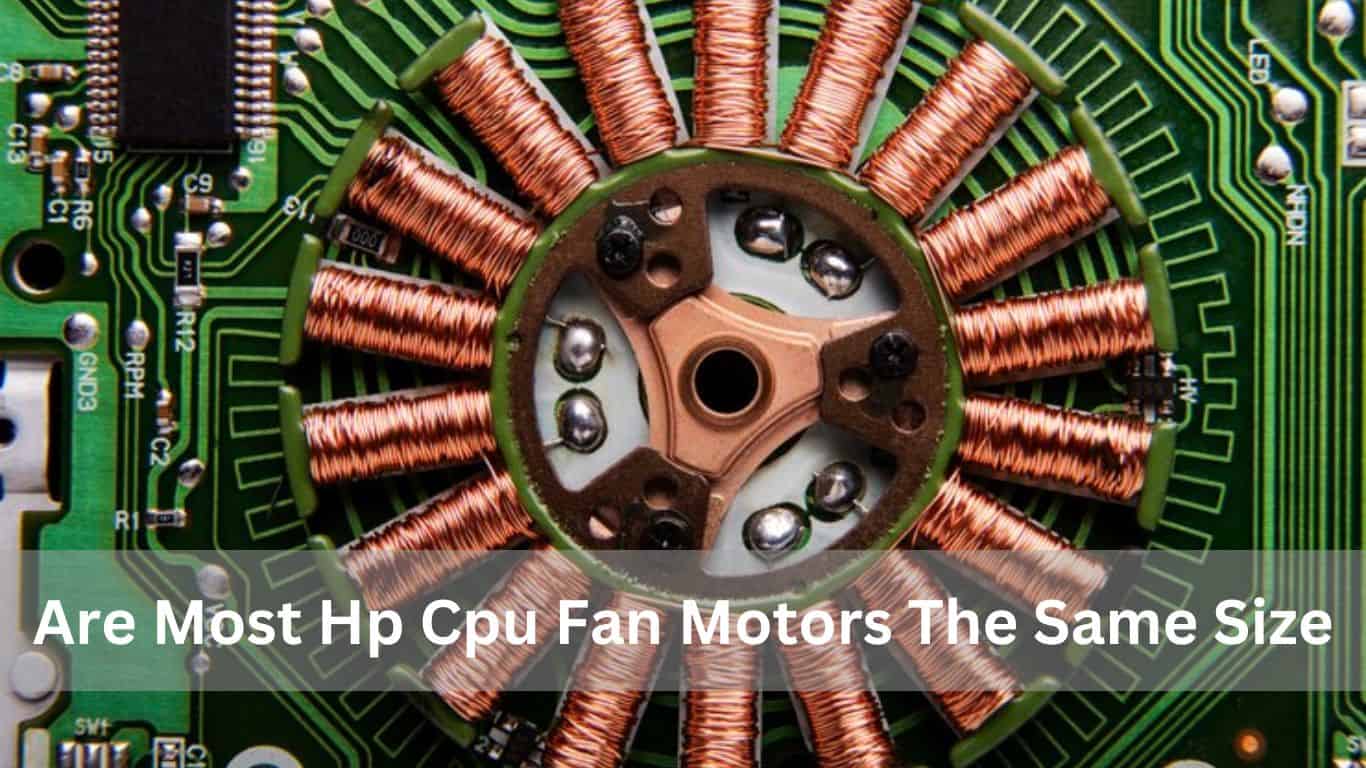When I first worked on my HP laptop, I noticed that CPU fans aren’t always the same size. Different models can have different fans, so it’s important to check before buying a replacement.
Are Most HP CPU Fan Motors The Same Size? (short answer)
No, most HP CPU fan motors are not the same size. They vary depending on the laptop model, design, and cooling needs. Always check your specific model’s requirements before buying a replacement.
In this article, we’ll explore whether HP CPU fan motors are the same size and how factors like design and cooling affect them.
What Is A CPU Fan?
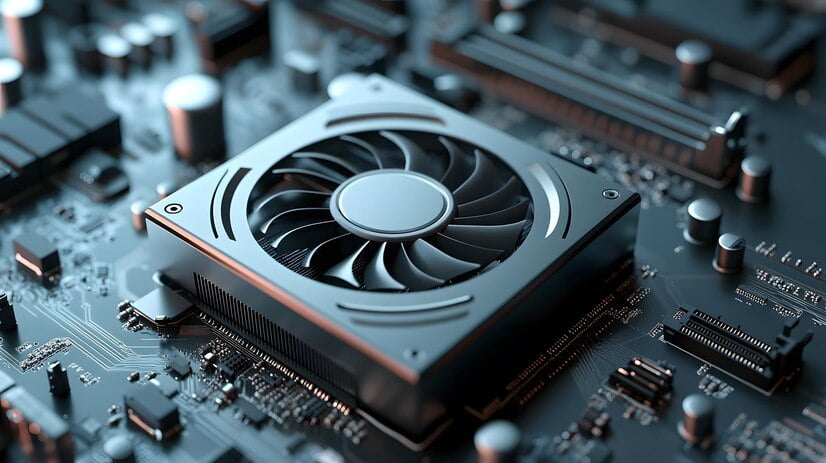
A CPU fan is a cooling device that helps dissipate heat generated by the CPU during operation. It usually consists of a fan blade attached to a motor, which spins to move air across the CPU heat sink, keeping the processor cool.
Role of a CPU Fan in a Computer
The main job of a CPU fan is to keep the CPU from getting too hot. As the CPU runs tasks and processes data, it creates heat. If it isn’t cooled properly, the heat can build up, which might slow down the CPU or even cause it to shut down to prevent damage.
How Does CPU Fan Size Affect Performance?
The size of a CPU fan can significantly impact its cooling efficiency. Larger fans can move more air at lower speeds, which often results in quieter operation and better cooling performance. On the other hand, smaller fans may need to spin faster to achieve the same cooling effect, potentially generating more noise.
HP CPU Fan Motors

Overview of HP’s Approach to Cooling Solutions
HP designs its computers with a focus on balancing performance, cooling efficiency, and noise levels. This often means using different fan sizes and configurations depending on the model and intended use of the computer.
Standardisation vs Customisation in HP Fans
HP employs a mix of standardized and customized components in its computers. While some models may use standard-sized fans, others might require customized solutions to fit specific design constraints or performance requirements.
Read Also: What Is A Good Idle Percentage CPU – Ultimate Guide 2024
Why Does HP Use Different Sizes For CPU Fan Motors?
HP’s use of different fan motor sizes is primarily driven by the need to optimize cooling solutions for different models. High-performance gaming laptops or workstations may require larger fans to handle the increased heat output, while compact or ultrathin laptops might use smaller fans due to space constraints.
Are Most HP CPU Fan Motors The Same Size?
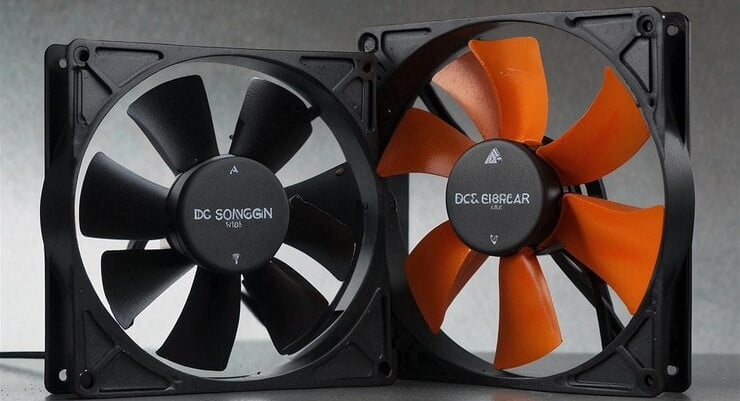
Common Sizes of HP CPU Fans
HP uses a variety of fan sizes across its product lineup. Common sizes include 40mm, 60mm, 80mm, and even larger fans in some desktop models. The size of the fan is often dictated by the form factor of the device and its cooling needs.
Factors Influencing Fan Motor Size in HP Computers
Several factors influence the size of the CPU fan motor in HP computers:
Model and Series Variations
Different HP models and series have varying cooling requirements. For example, the HP Omen series, designed for gaming, typically uses larger fans compared to the HP Envy series, which focuses on slim and portable designs.
Performance Requirements
Higher-performance CPUs generate more heat, necessitating more robust cooling solutions. As a result, HP might use larger fans in high-performance models to ensure adequate cooling.
Comparing HP CPU Fans With Other Brands
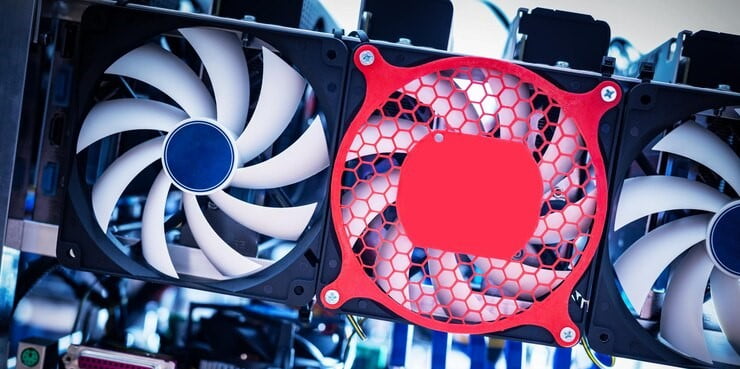
Similarities and differences in fan motor sizes
When comparing HP to other brands, you’ll find that while there are similarities in fan motor sizes, each brand tends to have its own unique approach to cooling solutions. For instance, Dell or Lenovo might use similar fan sizes in comparable models, but the design and airflow patterns could differ.
How Does HP Stand Out in Cooling Solutions?
HP distinguishes itself by offering a balance between cooling efficiency, noise levels, and device design. Their use of various fan motor sizes tailored to specific models ensures that each computer is adequately cooled without compromising on other aspects like noise or aesthetics.
How To Determine The Size Of Your HP CPU Fan Motor?
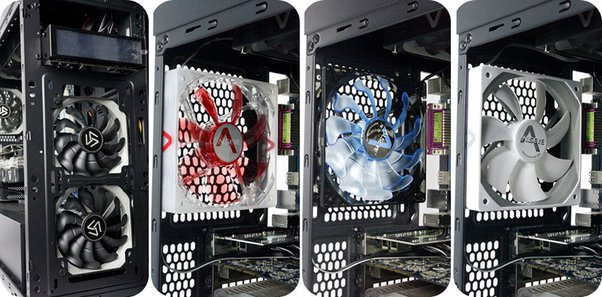
Checking Manufacturer Specifications
The easiest way to determine the size of your HP CPU fan motor is to check the specifications provided by HP. These can usually be found in the user manual or on HP’s support website.
Physical Measurement of the Fan Motor
If you can access the inside of your computer, you can measure the fan motor directly. This involves measuring the diameter of the fan blades, which will give you the fan size.
Consulting HP Support or Technical Manuals
For those who are unsure about opening their computer, HP support or technical manuals are excellent resources for finding out the exact size of the fan motor in your device.
Replacing or Upgrading HP CPU Fans
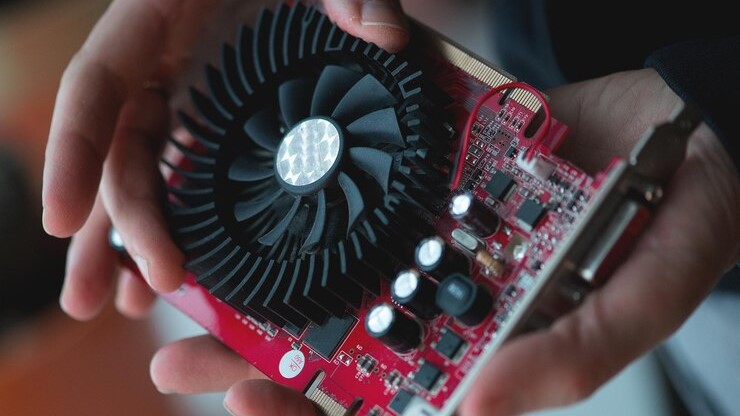
When Should You Replace A CPU Fan?
A CPU fan should be replaced if it starts making unusual noises, fails to keep the CPU temperature in check, or stops working altogether. Regular maintenance and monitoring can help identify when a replacement is needed.
Read Also: How To See My Computer CPU or Ram Speed – Complete Details In 2024
Choosing the Right Replacement Fan Motor
When selecting a replacement fan, it’s crucial to choose one that is compatible with your device. Consider the size, connector type, and cooling capacity.
Compatibility Issues
Using a fan that is not compatible with your HP model can lead to improper cooling or even damage to the system. Always refer to HP’s recommendations when selecting a replacement.
Performance Considerations
Upgrading to a fan with better cooling performance might be beneficial for high-performance tasks, but ensure that it fits within the design constraints of your device.
Fan Brake Power: Size Matters When Selecting Fan Motors
Fan Brake Horsepower: Size Matters When Selecting Fan Motors” highlights the importance of choosing the right motor size based on the brake horsepower (BHP) required. Selecting the correct fan motor size ensures optimal performance, energy efficiency, and longevity of the equipment.
Fan Motors Size Selection
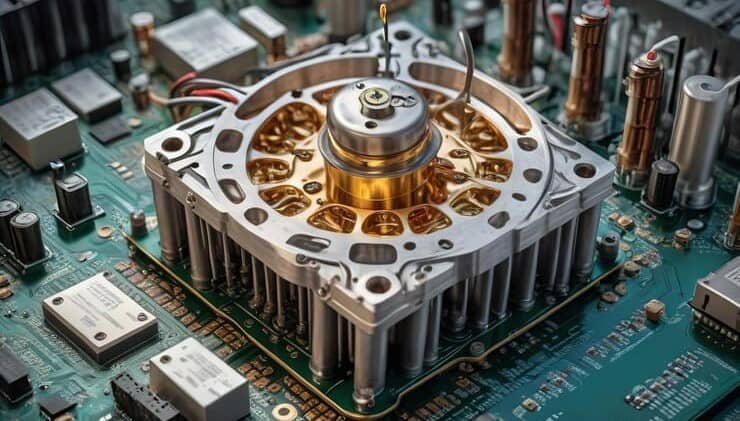
When choosing a fan motor size, the main factor is the fan’s brake horsepower (BHP), which is the power needed to run the fan. Also, decide if your fan will be belt-driven or direct-driven before finalizing the motor size.
Selecting Motor Size Based On Fan Drive Arrangement And Brake Horsepower
When choosing a motor size, consider the fan drive arrangement because different setups can cause horsepower losses. If you match the motor size exactly to the fan’s brake horsepower, it might not provide enough power for your needs.
Direct-Driven Fan Motor Selection
For direct-driven fans, selecting the right motor size is crucial. Since the motor connects directly to the fan, it must provide enough power without losses. Make sure the motor matches the fan’s brake horsepower for efficient performance.
Belt-Driven Fan Motor Selection
For belt-driven fans, choose a motor size larger than the fan’s brake horsepower (BHP). A V-belt drive usually loses 3-6% of horsepower. To meet the needed BHP at the fan, add extra horsepower to the motor size. For higher horsepower needs, add about 3%, and for lower needs, up to 6%.
Fan efficiency and brake horsepower
When selecting a fan motor, it’s crucial to consider not just the brake horsepower (BHP) but also the fan’s efficiency. The best efficiency point (BEP) is where the fan runs most effectively, saving energy and reducing maintenance. Operating a fan near its BEP improves performance and extends the time between repairs while straying from this point can lead to increased wear and noise.
Hear It From The Application Engineer
Hear It From The Application Engineer” provides insights from experts who can offer practical advice on selecting and sizing fan motors. They share valuable tips and real-world experiences to ensure you make informed decisions for optimal performance and efficiency.
Related Content on Industrial Fan Applications
To learn more about industrial fan applications, visit our additional resources. Read articles such as “Motor Speeds for Belt Drive Fans” and “Industrial Fans Belt Drive vs. Direct Drive” for valuable project insights.
Are All Cases Fans Compatible (As Long As He Size Is The Same?)
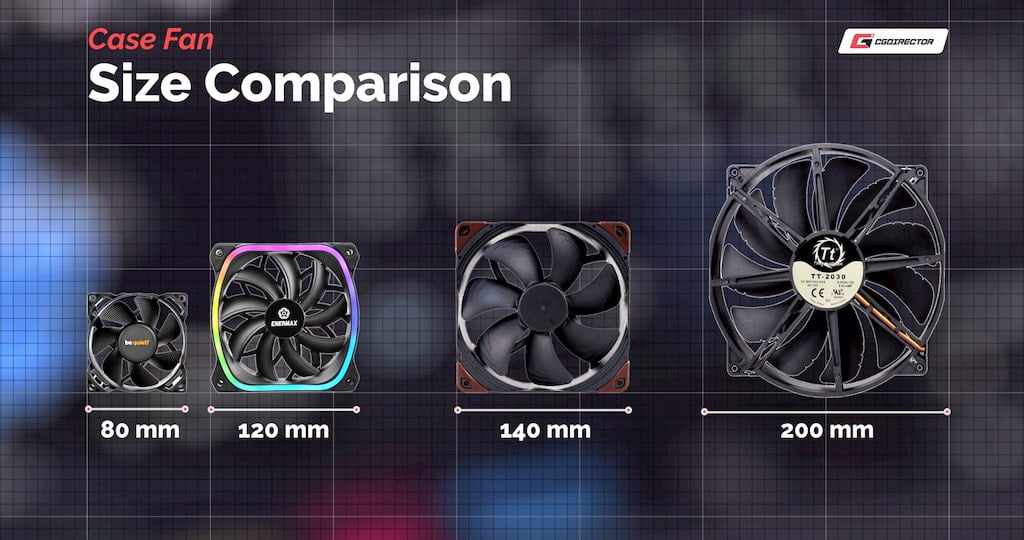
No, not all case fans are compatible, even if they are the same size. Compatibility depends on factors like the fan’s connector type, power requirements, and mounting hole alignment. Always check your system’s specifications before purchasing.
What’s The Fan Size Of My Computer And How Many Of Them Can I Have?
To find out the fan size of your computer and how many fans you can have, you can:
- Check Your Case Specifications: The case manual or manufacturer’s website will list supported fan sizes (e.g., 120mm, 140mm) and the number of fan slots available.
- Measure Existing Fans: If you have the case, measure the fans currently installed. Sizes are typically 80mm, 120mm, 140mm, or 200mm.
- Look Inside the Case: Open your case and count the empty fan slots. The number and size of fans you can install depend on your case’s layout and space.
This information will help you determine the appropriate fan size and quantity for optimal cooling.
Case Fans:
Case fans are essential components that help maintain optimal airflow within your computer case, ensuring that components stay cool and perform efficiently. They come in various sizes, like 80mm, 120mm, 140mm, and 200mm, with different airflow rates and noise levels.
When selecting case fans, consider factors like the size, connector type, and your case’s fan slots. Proper fan placement can significantly improve cooling performance and extend the life of your components.
Read Also: How Much CPU Usage For Mac Obs – Complete Details in 2024
Is all PC fan and CPU fan Same Size?
No, PC fans and CPU fans aren’t all the same size. Case fans vary in sizes like 80mm, 120mm, and 140mm. CPU fan sizes also differ based on the cooler and processor. Always check your PC and CPU cooler specifications for the correct size.
What Is The Approximate Core Size Of A Fan (Electric Motor)?
The core size of a fan’s motor is different for all motors. Small fan motors usually have cores 2 to 4 inches wide, while larger industrial motors can have cores 6 to 12 inches or more. The size depends on the motor’s power and design.
Can I Put More HP In My Condenser Fan Motor?
No, you shouldn’t put more horsepower (HP) in your condenser fan motor. The motor must match the condenser’s design and power requirements. Using a motor with too much HP can cause damage and reduce efficiency. Always use the correct motor size.
FAQ,s:
1. Are all CPU fans the same size?
No, not all CPU fans are the same size. They come in different sizes depending on the CPU cooler design and the cooling needs of the specific processor.
2. How Do I Know My CPU Fan Size?
To find out your CPU fan size, check your computer’s manual or measure the fan’s diameter with a ruler. You can also look up the specifications online for your CPU cooler model.
3. How Do I Know What CPU Fan Will Fit?
To find a CPU fan that fits, check your computer’s manual or CPU cooler specs for size and mounting details. Ensure the new fan matches these specifications and fits within your case and cooler setup.
4. Are CPU coolers one size fits all?
No, CPU coolers are not one size fits all. They come in different sizes and types, such as air or liquid coolers, and must match your CPU socket type and case size. Always check compatibility before purchasing.
5. How Do I Know If A CPU Cooler Will Fit In My Case?
To check if a CPU cooler will fit in your case, compare the cooler’s dimensions with the available space in your case. Look at your case’s specifications and measure the space where the cooler will go to ensure a proper fit.
6. Are all CPU coolers compatible with all CPUs?
No, not all CPU coolers are compatible with all CPUs. Coolers must match the CPU socket type and size. Always check the cooler’s compatibility with your specific CPU model and motherboard socket before purchasing.
7. How Do I Know What CPU Fan To Buy?
To choose the right CPU fan, check your CPU cooler’s size and socket type. Ensure the fan matches these details and fits your case. Look for compatibility in your computer’s manual or specifications.
8. Can I Put Any Cooler On My CPU?
No, you can’t put any cooler on your CPU. The cooler must match the CPU socket type and size. Always check compatibility with your CPU and motherboard before buying a cooler.
9. Are all-in-one CPU coolers worth it?
All-in-one CPU coolers can be worth it if you need strong cooling and less noise. They are great for high-performance setups but are pricier and need more space.
Conclusion:
In conclusion, most HP CPU fan motors are not the same size. The size varies depending on the model, performance requirements, and design constraints. Understanding these differences can help you make informed decisions about maintaining or upgrading your HP computer’s cooling system.
Also Read:
- How Much CPU Usage For Mac Obs – Complete Details in 2024
- What Is A Good Idle Percentage CPU – Ultimate Guide 2024
- How To See My Computer CPU or Ram Speed – Complete Details In 2024
